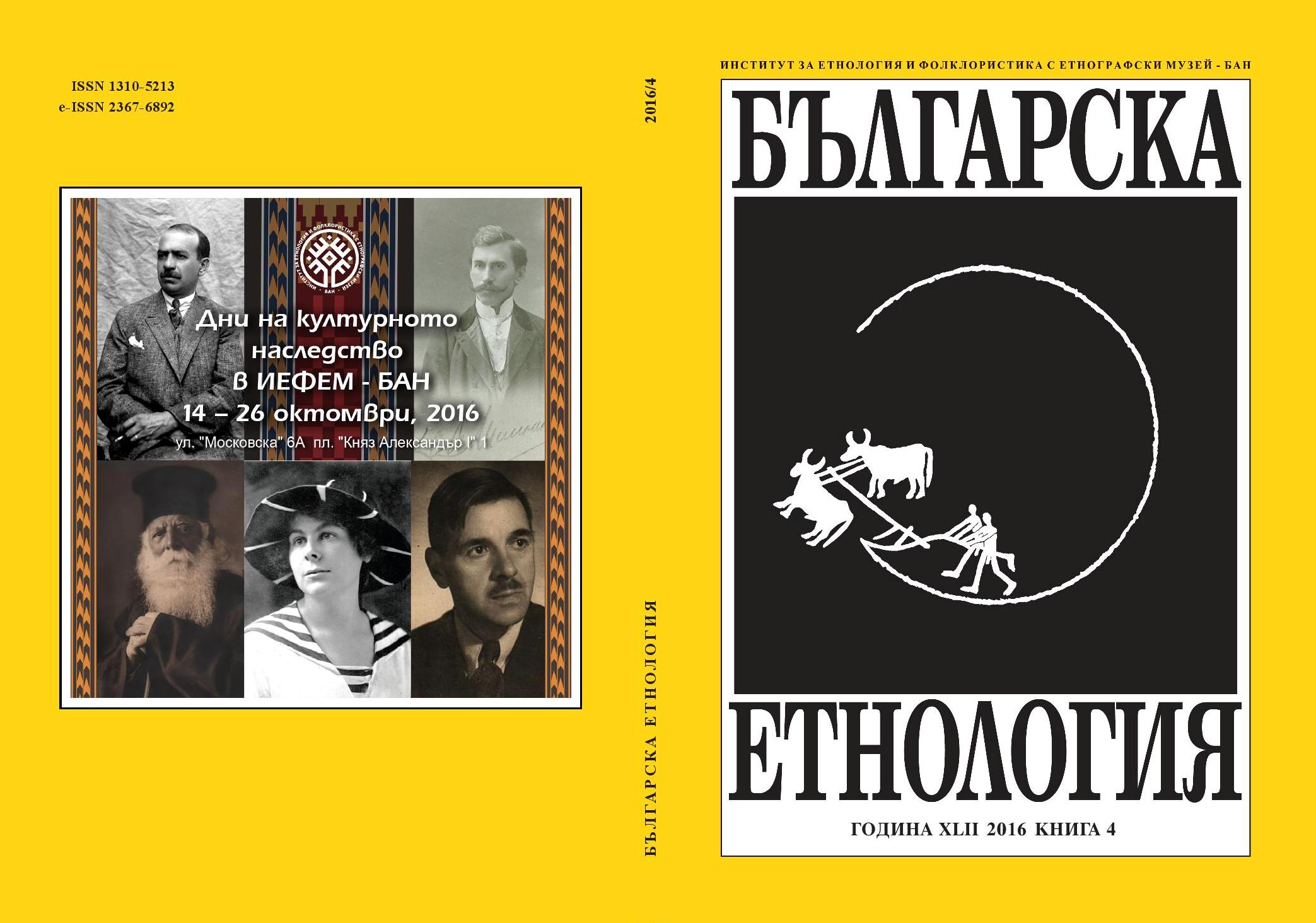
We kindly inform you that, as long as the subject affiliation of our 300.000+ articles is in progress, you might get unsufficient or no results on your third level or second level search. In this case, please broaden your search criteria.



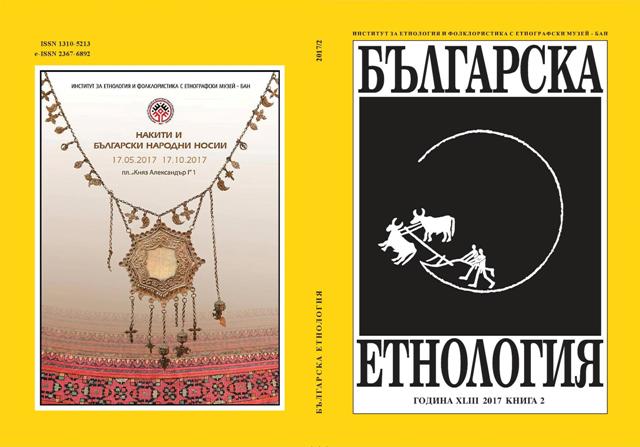
The migrations of the Turks from Bulgaria to Turkey in the 20th century are subject of broad academic and pubic discussions; the greatest attention is paid to the last wave of migration of 1989. The article directs the attention further back in the history, to the period from 1950 to 1951 when the Bulgarian and Turkish authorities organized for the first time a mass deportation of over 150 000 Turks. The study discusses the macro and micro framework of that migration flow in the light of the scientificanalytical approach of histoire croisée/entangled history. By means of it, the author analyses the “entangled” policies presented on the basis of Bulgarian, Turkish and other historical sources and compared to ethnographic fieldwork materials collected among the Bulgarian migrants in the city of Izmir. The study works out new issues and issues insufficiently examined of the written and oral history of the Turkish migrants related to the ideas of homeland, the influence of social and kin networks and the reconstruction of identity in the processes of migration, adaptation and integration.
More...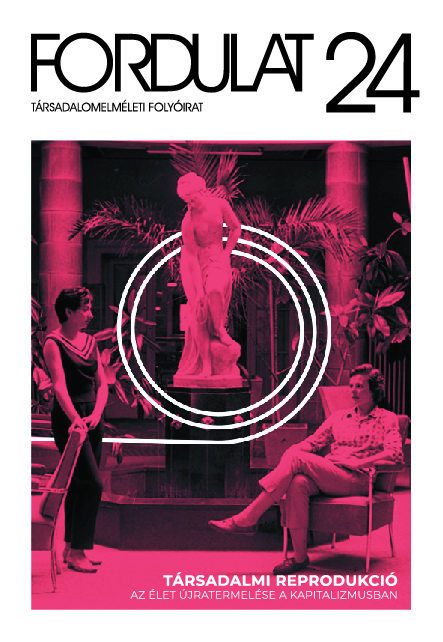
In Neoliberalism from Below—first published in Argentina in 2014—Verónica Gago examines how Latin American neoliberalism is propelled not just from above by international finance, corporations, and government, but also by the activities of migrant workers, vendors, sweatshop workers, and other marginalized groups. Using the massive illegal market La Salada in Buenos Aires as a point of departure, Gago shows how alternative economic practices, such as the sale of counterfeit goods produced in illegal textile factories, resist neoliberalism while simultaneously succumbing to its models of exploitative labor and production. Gago demonstrates how La Salada’s economic dynamics mirror those found throughout urban Latin America. In so doing, she provides a new theory of neoliberalism and a nuanced view of the tense mix of calculation and freedom, obedience and resistance, individualism and community, and legality and illegality that fuels the increasingly powerful popular economies of the global South’s large cities.
More...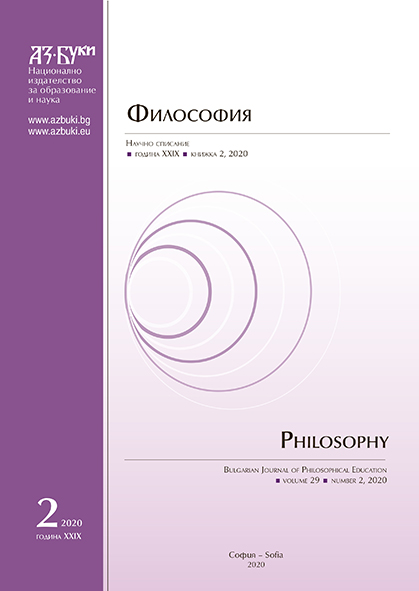
The advancement of science and the change of moral norms in a market-driven society not only generate prosperity but also challenge the future of humankind. Most of the changes and problems in the environment can be foreseen if we turn to the knowledge that we acquire through ecology not only as an interdisciplinary but also as a transdisciplinary science. It is of no less important though that this knowledge should be rationalized in accordance to values and moral norms – in terms of a philosophy that explains the meaning of the technologically changing world and the consequences for the future.
More...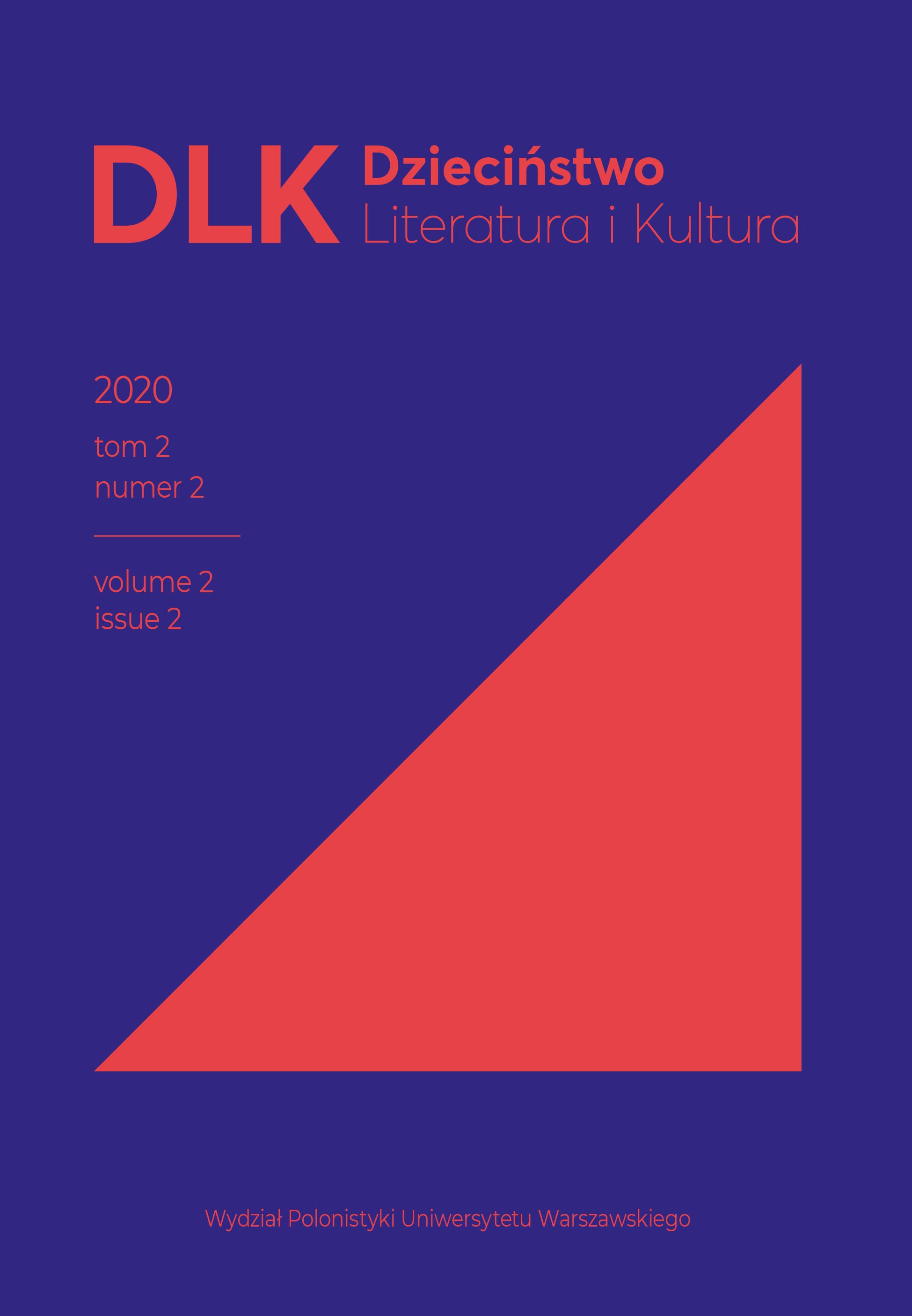
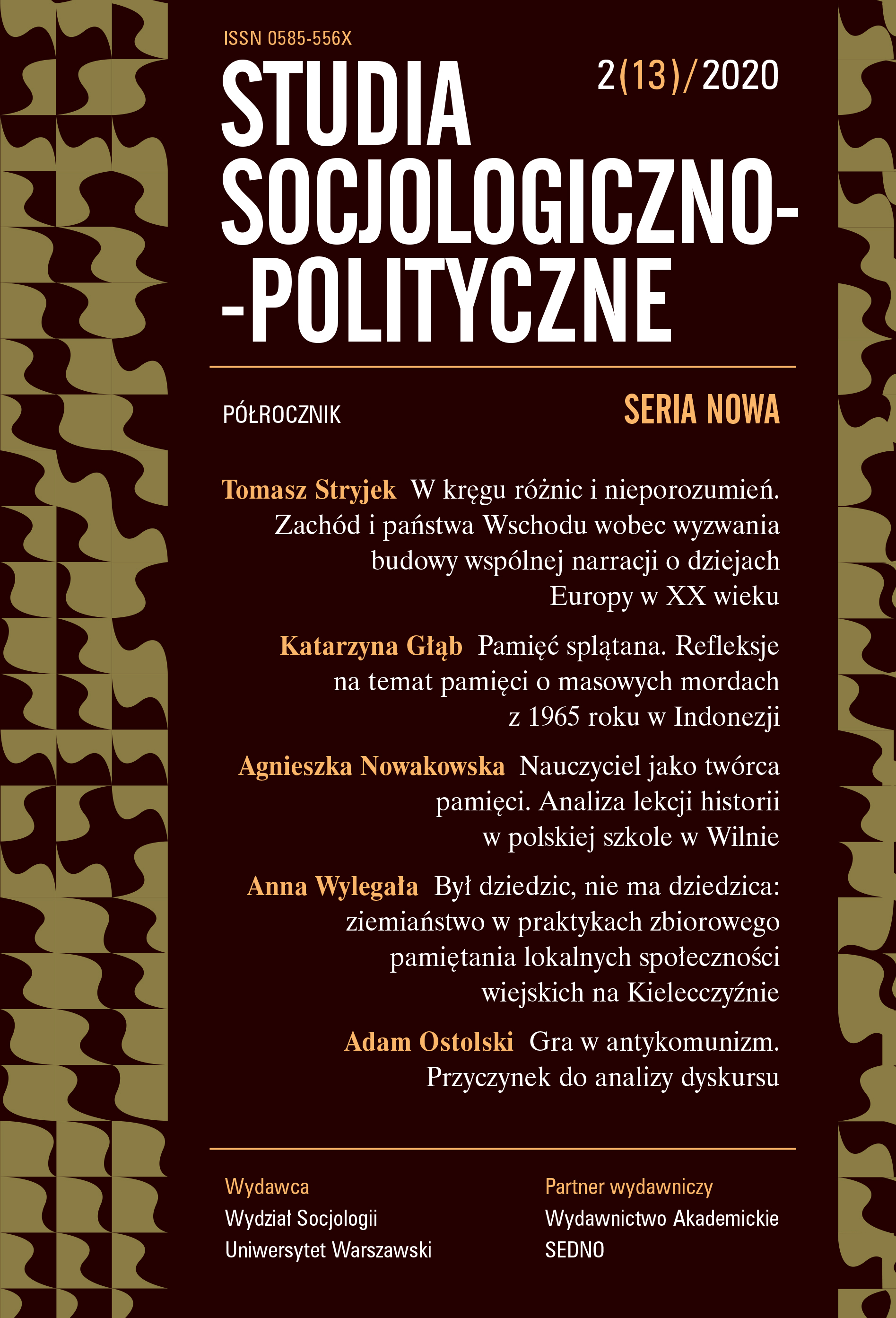
This paper focuses on one specific aspect of the Polish collective memory, namely – on the memory of the landed gentry and their expropriation from the Polish countryside conducted by the communist government in 1944. The communists expropriated the gentry, gave most of the land to the peasants and irreversibly changed social and economic structure of the Polish countryside. The paper analyzes how the very fact of the gentry’s historical presence and later expropriation is represented in the collective memory of the local village communities, and how it is used in the creation of the local memory scope and historical identity. The theoretical focus is on the acts of collective remembrance as understood in the work of Jay Winter, and then on the public aspect of the collective memory. Grounded in extensive fieldwork, this paper focuses on the case study of two villages which give examples of particularly active commemorative practices connected with the symbolic legacy of the expropriated landowners.
More...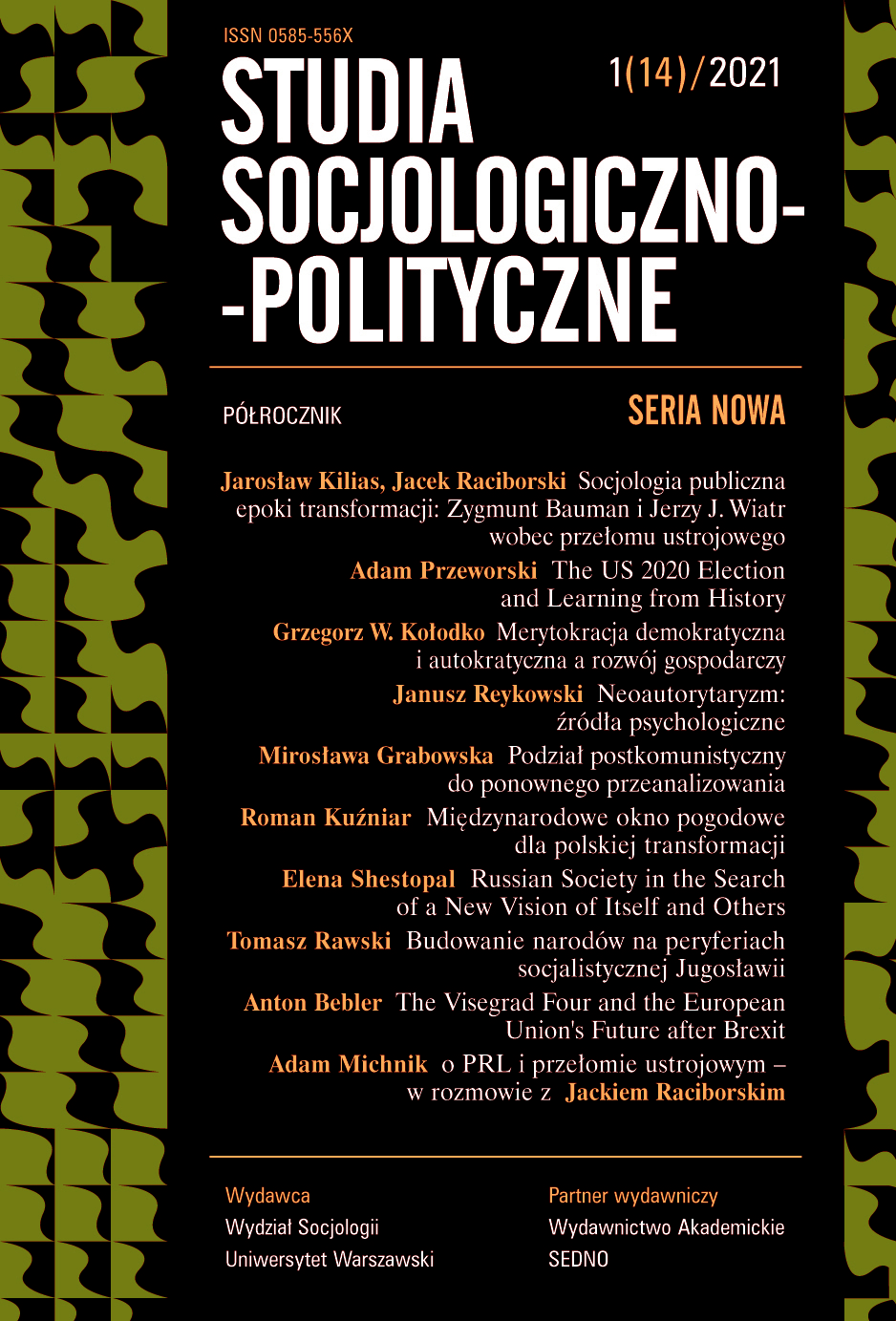
During the last two decades, we are facing in liberal democracies various manifestations of a political crisis. The advanced forms of this crisis has been described by JerzyJ. Wiatr as new authoritarianism. It can be explained as a consequence of the development of antidemocratic political movements that are obtaining the increasingsupport of electorates in Europe and elsewhere. In this paper, two main causes of these processes are discussed: the imbalances in various spheres of the contemporary world – in political, economic, sociocultural spheres, in environment and climate as well as the sociopsychological consequences of these imbalances. Their main sociopsychological consequence in societies is the spreading of the sense of epistemic, existential andcultural (symbolic) threat. Psychological research indicates that the frequent reaction to such threats is the increase of conservatism and Right Wing Authoritarianism. Such reactions may have deep sources in some basic characteristics of a homo sapiens but they are not inevitable effects of the threats. In this paper, an effort is made to explain why in the contemporary world these psychological reactions to threats can be highly maladaptive.
More...
Lipset and Rokkan’s theory of cleavages as well as its interpretation and continuation of Bartolini and Mair became the basis for formulating the concept of the communist and post-communist cleavage. The concept of the post-communist cleavage gained solid empirical confirmation for the period from 1989 to the middle of the parliamentary term of 2001–2005. However, significant changes have taken place on the Polish political scene since then. The article, referring to the indicated authors, attempts to answer the question whether the post-communist cleavage in Poland lasts and if it will stay. The analysis focuses on the crisis of the post-communist side and the conflict on the post-Solidarity side of the cleavage. Empirical analyses show that as a result of the political conflict, the electorates of the two post-Solidarity parties – Civic Platform and Law and Justice – have clearly grown apart, and that the post-communist side is also divided, certainly on the level of political parties. The article describes various possibilities of a further development of the socio-political situation, but does not propose a definitive answer to the question of what to do with the post-communist division in Poland.
More...
Numerous uncertainties are hanging over the biotechnology of human cloning which has prompted medical ethicists and religious organizations to ask questions that bordered on its ethical and religious considerations. In cloning humans, ethical and religious issues arise both in its clinical and laboratory settings hence, the morality of manipulating human genes is the foremost ethical issue among scientists and religious scholars. Therefore, this paper evaluated the human cloning technology using the personalism and prudential personalism ethical-religious models to arrive at a workable moral paradigm. To achieve this objective, the paper employed the phenomenological and critical-literary literature review methods. The paper argued that previous ethical and religious researches have not adequately employed the ‘ideal’ ethical models to appraise the morality of human cloning hence; using the personalism and prudential personalism ethical-religious models were appropriate to reveal that every human life has worth and its commodification is an aberration. The paper concluded that based on the paradigm of prudential personalist ethics, cloning humans (especially, human reproductive cloning) negates respect for human life, human dignity, and communal goods hence it should not be practiced.
More...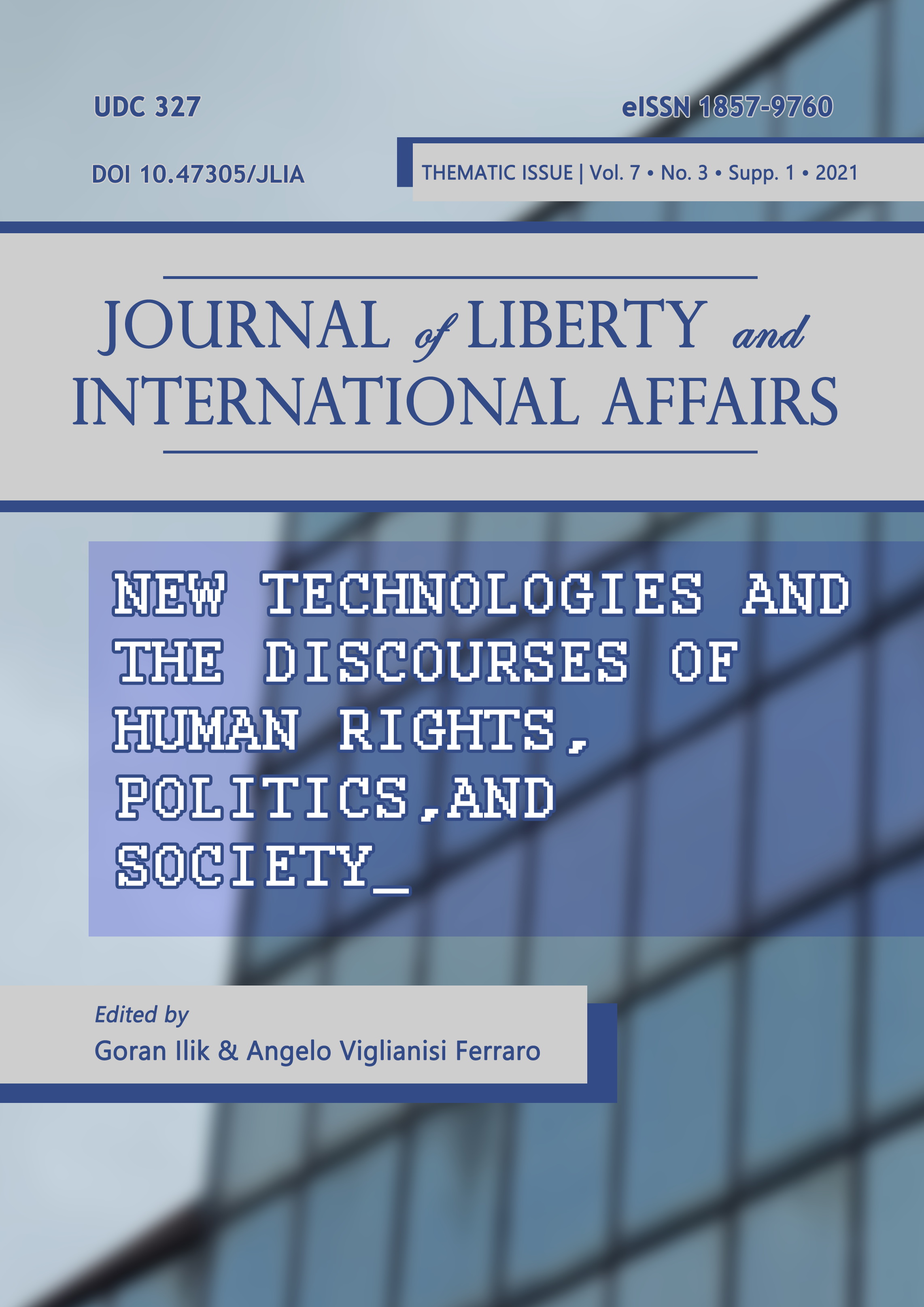
The article has intended to study the action of Twitter-based media advocacy promoted by the Ministry of Health (MOH) of the Government of India, and World Health Organization (WHO) during the Covid-19 pandemic. Its goal was to assess the degree of the WHO and MOH's media campaigning for Covid-19, as well as the public's perception of this advocacy. In this regard, mixed methods have been used for data collection where a survey has been conducted with 125 respondents, who use Twitter, from Kolkata (India) with the help of random sampling. A content analysis of two well-known Twitter accounts was conducted, which helped to reflect the current trends that they follow. The findings of this research have reflected the choice of medium preferred by the respondents for receiving news and information during the Covid-19 pandemic. It has also helped to identify the Twitter handles and tweets they mostly follow and thereby the major factors influencing their choice. The outcome of this research has helped to study whether Twitter can be used for institutionalized health communication or not in the future.
More...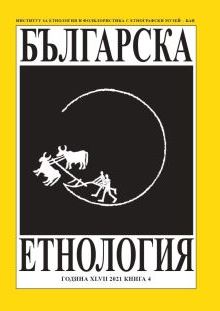
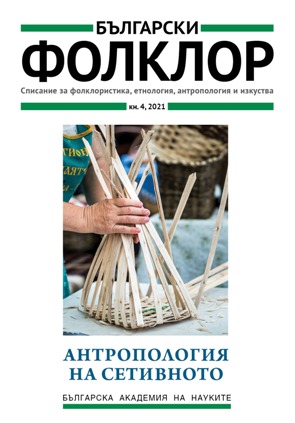
The paper describes the results from the research project “Sensory Ethnography of the City”. The authors discuss some aspects of the theoretical and practical models for the application of the sensory-ethnographic approach in urban studies. The focus of the study is on some multi-sensory aspects of the communication between people with disabilities and institutions. The field research in the framework of the project developed innovative methods, elaborated a theoretical model of the sensory aspects of the relationships between disabled people and institutions, and mapped the places where the citizens meet the administration. The final results of the project were a sensory exhibition, a conference, a book and a round table.
More...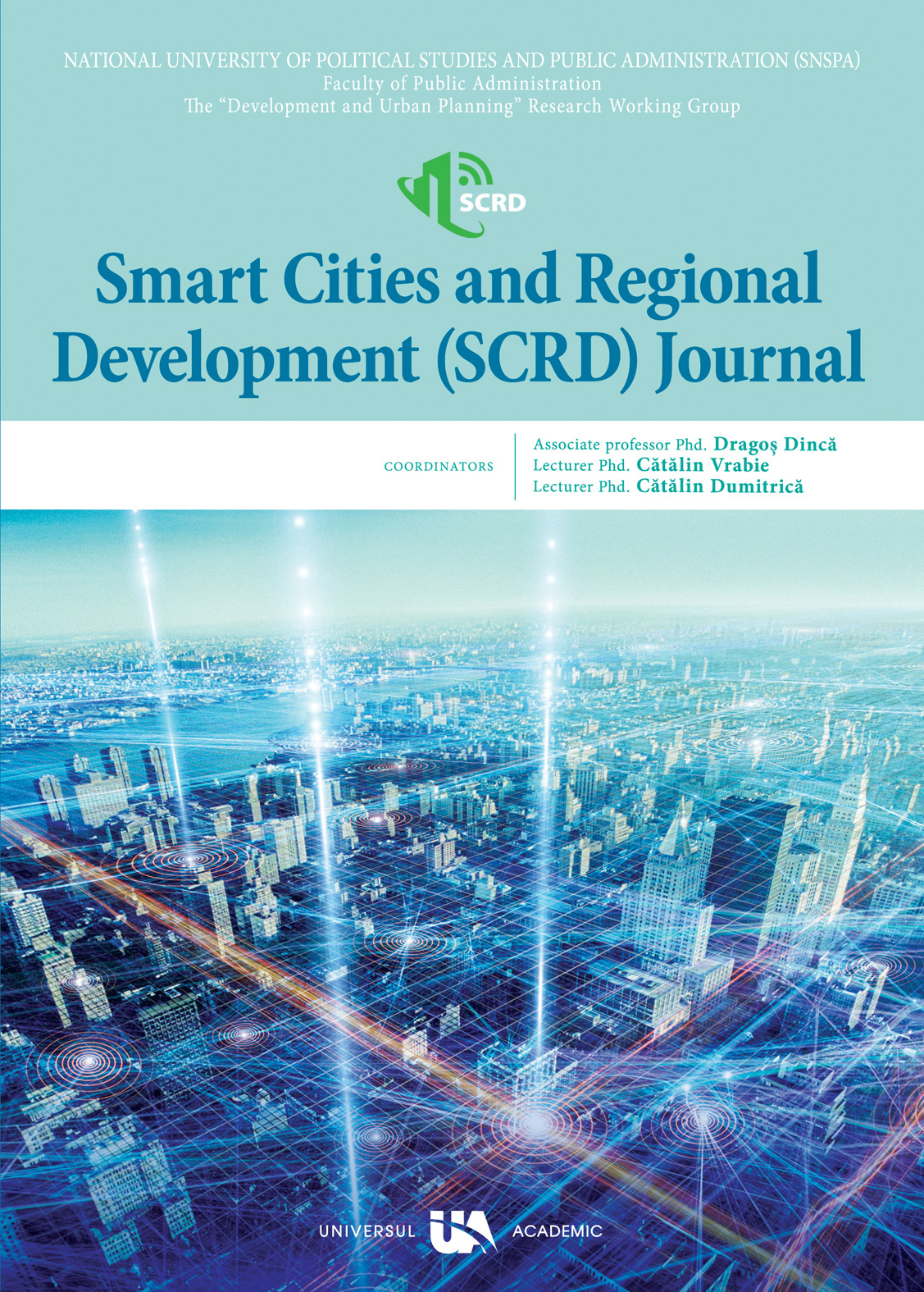
The main objective of this study was to determine the cost-effectiveness of green spaces in controlling environmental and health risks in residential areas. The study aimed at comparing the costs of using green spaces and the costs of conventional infrastructure in controlling environmental and health risks. Many scholars have qualitatively reported that residential home greenery is recognized as an important component for the control of environmental and health risks. However, the cost-effectiveness of green spaces relative to man-made solutions for the same is not documented with certainty. The study deployed a questionnaire, field observation and measurement methods for data collection. The study revealed that, depending on location, residents face five major environmental and health risks; fugitive dust, violent wind, runoffs, animal habitat deterioration, soil erosion and flood water. The percentage of households using green spaces as a strategy for controlling the aforementioned risks is still minimal despite the high monetary saving. The majority of the respondents’ home greeneries are incorrectly orientated and home entrances appear to be more of a factor in determining where green space is located. With exception of risks of run-offs, utilization of green spaces in controlling environmental and health risks saves more than 90% of costs compared to costs for a man-made solution and 61% for run-off control. Results imply that there is a need for advocacy for greater realization of green space as a cost-effective strategy in controlling environmental and health risks among residents, environmentalists, planners and disaster risk practitioners in Dar e salaam City, Tanzania.
More...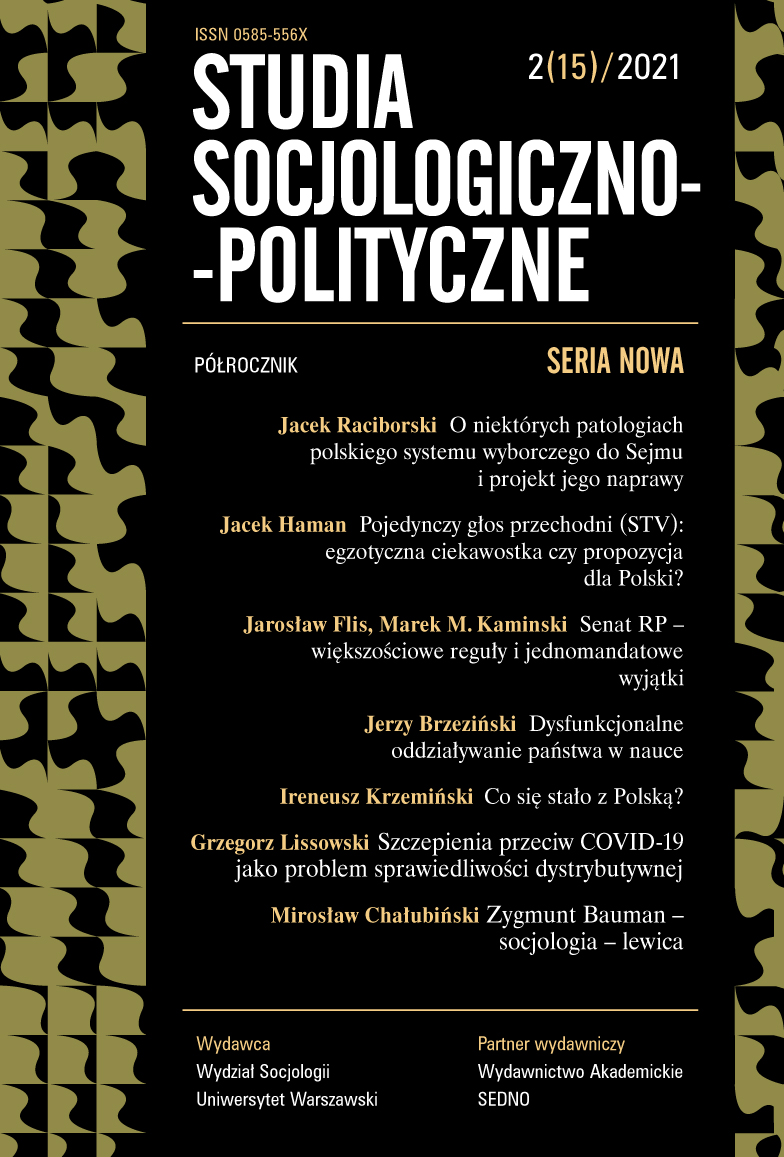
The purpose of this text is to take up an analysis of forms of civil disobedience, occurred during the pandemic in Europe. Referring to works of such authors as H. Arendt,J. Habermas, J. Rawls we argue that civil disobedience, more or less contextual and varying, depending on the phase of the pandemic and on the country, has lead to the crisis of representative democracy and to the crisis of the art of governing (in technical and strictly legal terms) of the expert type. In the same time, civil disobedience has been a manifestation of the vitality of a democratic life. Disobedience can be seen as a sovereign political act – a consequence of a conviction that trust agreement between the ruling and the governed has been broken. Thus the disobedience aims at fixing it. In this sense, the civil disobedience became the collective reflective moment of democratic life in the meaning of U. Beck (2001).
More...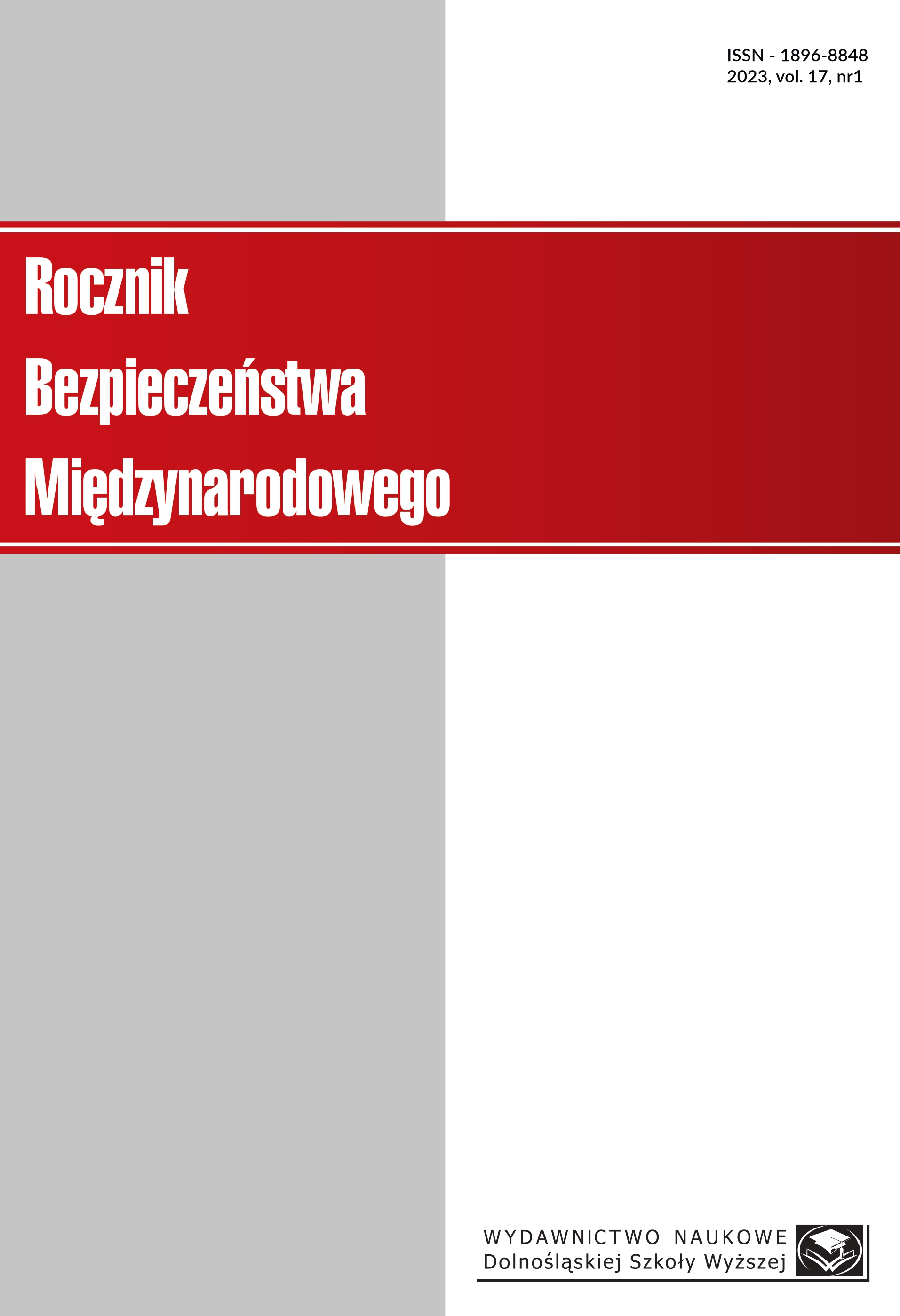
In many of the world's armed conflicts, the health sector has become a target of attacks, and the number of such attacks has increased significantly in recent years. The impact and consequences of armed conflict on health care are far-reaching and long-lasting. In addition to the direct casualties of armed conflict, indirect casualties remain significantly underestimated. The unstable situation as a result of armed conflict leads to the abandonment of preventive programs, the delay of diagnosis, or the abrupt interruption of the therapeutic process, which significantly reduces the prognosis of patients and leads to an increase in mortality. Mass migration, including the migration of patients, shortages of medicines and medical equipment, interrupted basic and clinical research, the mental strain on the population, or staff shortages, have a significant burden on the health sector. This article attempts to collect and describe the key problems faced by health systems affected by armed conflict, using examples in the context of the current war in Ukraine, among others. This paper aims to conduct an analytical study to develop recommendations for the health sector facing a humanitarian crisis. It describes the findings of a literature review regarding the impact of armed conflict on the health sector. The collected literature was the subject of critical analysis. The conclusions drawn were placed in the context of the current conflict in Ukraine.
More...
On the 6th of February, 2023, a strong earthquake struck south-eastern Turkey and north Syria. A number of international search and rescue teams went to the affected region. Against the background of these events, the author discusses the most important aspects of the operation of the international civil protection systems, focusing on those directly related to the deployment of rescue teams to the earthquake-affected region. In addition, the key stages of rescue operations carried out by a group from Poland (HUSAR Poland) are discussed, with references to theoretical issues of organising the work of the teams and assisting those who were affected. The article demonstrates the activities of international aid systems and provides statistics of victims extracted by search and rescue teams. It proved their effectiveness in saving lives.
More...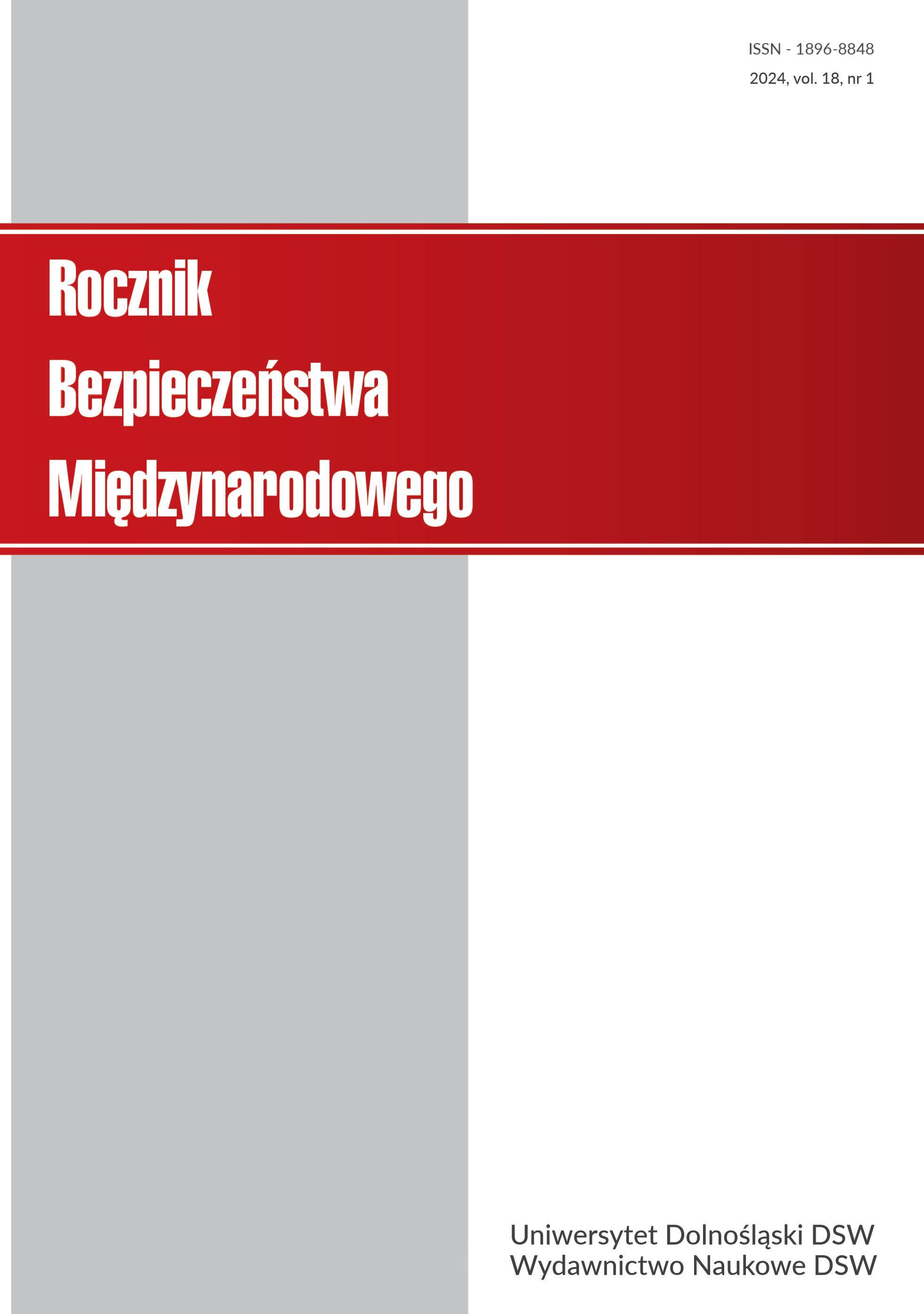
Given the instability of the global economic system caused by natural disasters, financial crises, pandemics, and armed conflicts, the realization of sustainable development as a global strategy is increasingly challenging. The exacerbation of global problems facing humanity – and Russia’s large-scale invasion of Ukraine – further worsen the issue of international security in general. There is a need to find effective approaches to the implementation of international relations in current conditions that would guarantee sustainable development and international security. This article examines the theoretical and conceptual foundations of sustainable development diplomacy based on a literature review. It tests the hypothesis about the ability of sustainable development diplomacy to be an effective and efficient tool in current conditions for ensuring sustainable development and international security using the hypothetical and deductive method. The compliance of sustainable development diplomacy, with the fundamental principles of sustainable development, is investigated through an analysis of definitions, determining whether the state’s foreign policy is aimed at sustainable development and whether sustainable development is achieved exclusively through peaceful means, as well as identifying the defined role of sustainable development diplomacy in ensuring international security. Additionally, the article explores the relationship between sustainable development and international security through an interdisciplinary analysis and the method of induction. The regulatory tools for sustainabledevelopment diplomacy in the context of international security were improved through theapplication of the integration method.
More...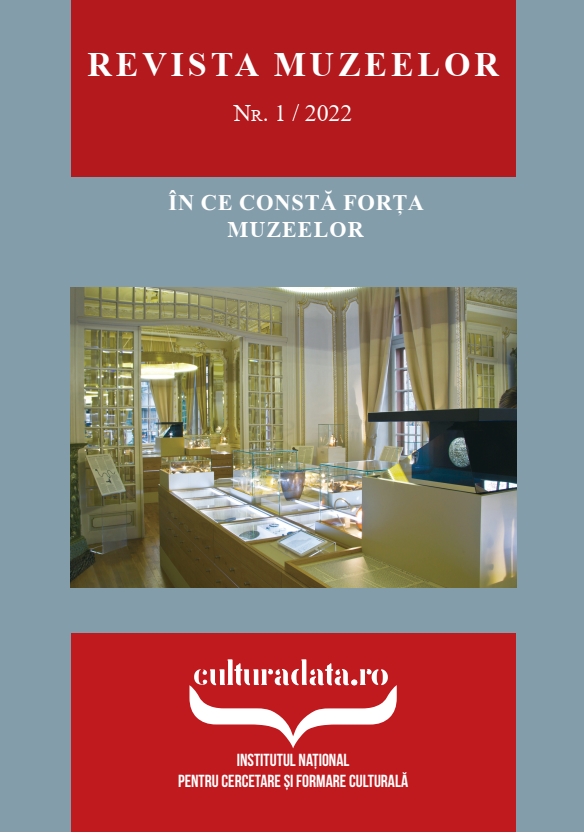
The subject of this paper is still not enough explored, not only from the perspective of museum research but also from that of studies belonging to other fields that take into account the need to integrate culture in urban regeneration. Because this topic is current and relevant for the multitude of cultural and social forms in which the museum institution could become a lasting pillar, we believe that our attempt will allow us to sketch an integrative project from which to extract some useful considerations for future research. The conclusions that emerge from positioning the National Museum of Romanian Literature in Bucharest (MNLR), more precisely its cultural hub located in a disadvantaged area, in the epicenter of urban regeneration through culture of the adjacent area, will hopefully be compelling enough to support a cultural axis. Especially since the targeted area (although it has a rich local cultural heritage, which deserves to be capitalized and whose historical memory must be preserved) does not yet experience the long-awaited revival, MNLR - as already demonstrated - can become a crucial actor, together with partners from civil society, in drawing a new cultural axis in the Romanian capital. This could contribute to the transformation of a physically degraded area with precarious living conditions into an engine for integrating culture into the daily concerns of as many fellow citizens as possible, and not only those belonging to the local community. After all, any attempt to achieve a prospective approach focused on the museum institution only validates the generous and mobilizing slogan of ICOM: “Museums have no borders, they have a network”.
More...